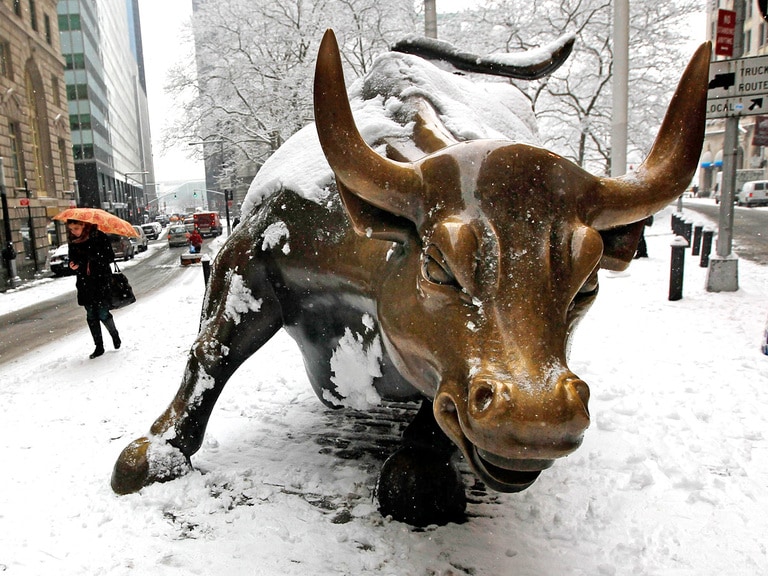Since the downturn in March, the US stock market rally has been driven by technology stocks. Following a low of 6,879 on 20 March, the Nasdaq Composite climbed 75% to reach an all-time high of 12,074 during intraday trading on 2 September.
However, the euphoria behind the tech-heavy index started to disappear the next day as US tech stocks experienced a sharp 4.9% pull back.
The sell-off continued on 4 September and into the start of the following week, after the long Labor Day weekend. Electric vehicle maker Tesla [TSLA], one of the standout successes of the rally, saw one of the biggest declines.
As of 16 September, the Nasdaq has fallen to 11,050.47 — a 6.2% drop for the month despite a year-to-date increase of 23.2%. The early September losses have meant that the index has erased more than half of the 9.5% in gains it made throughout August.
So, what’s causing the selling?
Work-from-home winners
Recent gains made by the index were largely driven by the performance of work-at-home stocks, which helped to offset the declining revenue seen in airlines and brick-and-mortar retailers.
One of the biggest and most recent boosts came in the form of Zoom’s [ZM] astounding second quarter 2021 earnings, which were released on 31 August. It posted a 355% year-over-year revenue jump to $663.5m, which sent its share price soaring 40% the following day. The earnings report sent investors scrambling for other work-from-home stocks, such as DocuSign [DOCU], which then piggybacked Zoom’s success.
355%
Zoom's YoY revenue jump to $663.5m
With interest and investment in the tech sector bubbling up for some time, a burst was inevitable. For a while, analysts and experts have argued that a number of tech stocks are grossly overvalued.
Furthermore, a recent report by the Financial Times alleged that the Japanese banking giant SoftBank [99.84] — dubbed the ‘Nasdaq Whale’ — made $4bn from its call options in tech stocks. It suggested that SoftBank’s bets on US-listed companies could be, at least in part, responsible for the market’s inflation.
A healthy correction
Analysts and experts appear divided in their response to the news regarding Softbank. Some are treating it with caution, while others have suggested that the increase in retail investors has also played its part in pushing companies to all-time highs.
Tesla is a case in point. The stock is hugely popular with traders on trading platform Robinhood. The desire to be part of Elon Musk’s electric vehicle revolution increased since its recent stock split made its shares more affordable. The share price climbed an extraordinary 500% year-to-date prior to the recent pullback — the stock was clearly getting too hot to handle and in need of a correction.
“There is currently no panic, and some investors see the latest downturn as a healthy correction after several of the tech giants reached staggering heights. The current sell-off will far more likely end up being a temporary setback rather than the beginning of a trend change,” Milan Cutkovic, a market analyst at AxiCorp, wrote in a note to clients.
“There is currently no panic, and some investors see the latest downturn as a healthy correction after several of the tech giants reached staggering heights. The current sell-off will far more likely end up being a temporary setback rather than the beginning of a trend change” - Milan Cutkovic, a market analyst at AxiCorp
The pullback could end up being just a blip, like the one seen on 11 June, when the Nasdaq 100 dipped around 5% before recovering over the next week or two.
However, founder of Sundial Capital Research Jason Goepfert argues that, if the lead up to the crash of 2007 has taught us anything, it’s that indices are likely to swing upwards on the back of bullish investor sentiment and then drop back down. The sell-off could be a big indicator that a crash is around the corner, possibly next year.
What do investors expect in the months ahead?
A number of the big-name stocks have made up some of the ground they lost in the first week of September, but there could be further falls ahead for the Nasdaq’s constituents. Savita Subramanian, an equity analyst at Bank of America, warns that these stocks could still give back more of the gains they’ve made in recent months before the year is out.
“We are not of the woods, in fact, quite the contrary,” she told the Financial Times.
“We are not of the woods, in fact, quite the contrary” - Savita Subramanian, an equity analyst at Bank of America
Subramanian sees a range of likely outcomes. The “realistic worst case” is a second wave, another lockdown and a double-dip recession. On the other hand, the “best case” would mean a vaccine for the virus and further stimulus packages supported by low-interest rates.
Some would argue that another lockdown would be a boon for tech stocks, which would likely see another surge in their work-from-home services and software. However, relying on this is a risky, not to mention unsavoury, strategy.
For now, the markets seem to have stopped the bleeding but as long as the Nasdaq remains weighted in favour of companies with skyrocketing growth, soaring share prices and high valuations, it’ll be at the mercy of volatility.
Further falls for the Nasdaq can’t be ruled out.
Disclaimer Past performance is not a reliable indicator of future results.
CMC Markets is an execution-only service provider. The material (whether or not it states any opinions) is for general information purposes only, and does not take into account your personal circumstances or objectives. Nothing in this material is (or should be considered to be) financial, investment or other advice on which reliance should be placed. No opinion given in the material constitutes a recommendation by CMC Markets or the author that any particular investment, security, transaction or investment strategy is suitable for any specific person.
The material has not been prepared in accordance with legal requirements designed to promote the independence of investment research. Although we are not specifically prevented from dealing before providing this material, we do not seek to take advantage of the material prior to its dissemination.
CMC Markets does not endorse or offer opinion on the trading strategies used by the author. Their trading strategies do not guarantee any return and CMC Markets shall not be held responsible for any loss that you may incur, either directly or indirectly, arising from any investment based on any information contained herein.
*Tax treatment depends on individual circumstances and can change or may differ in a jurisdiction other than the UK.
Continue reading for FREE
- Includes free newsletter updates, unsubscribe anytime. Privacy policy





